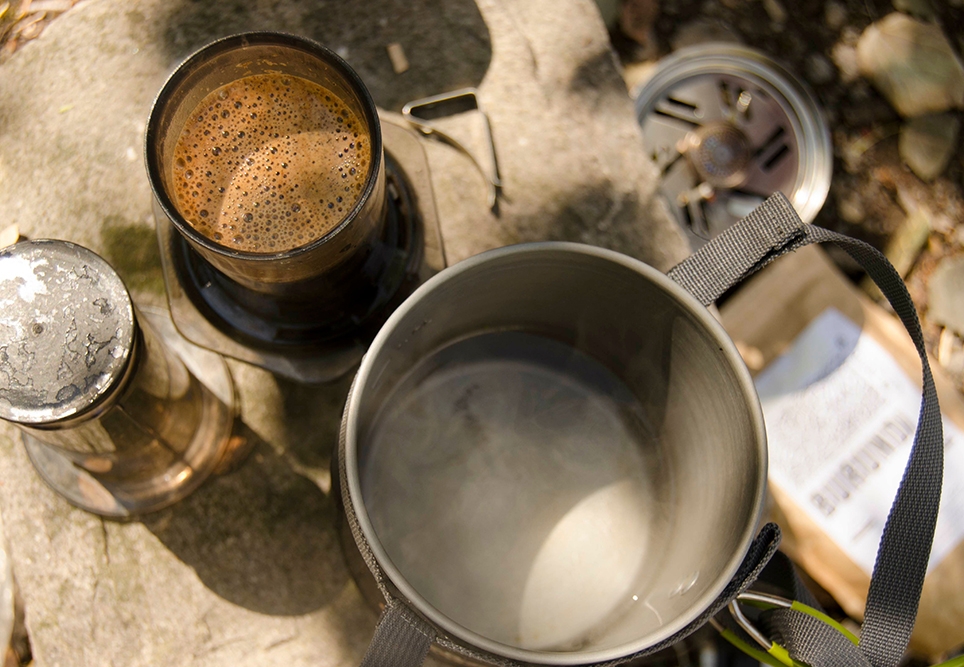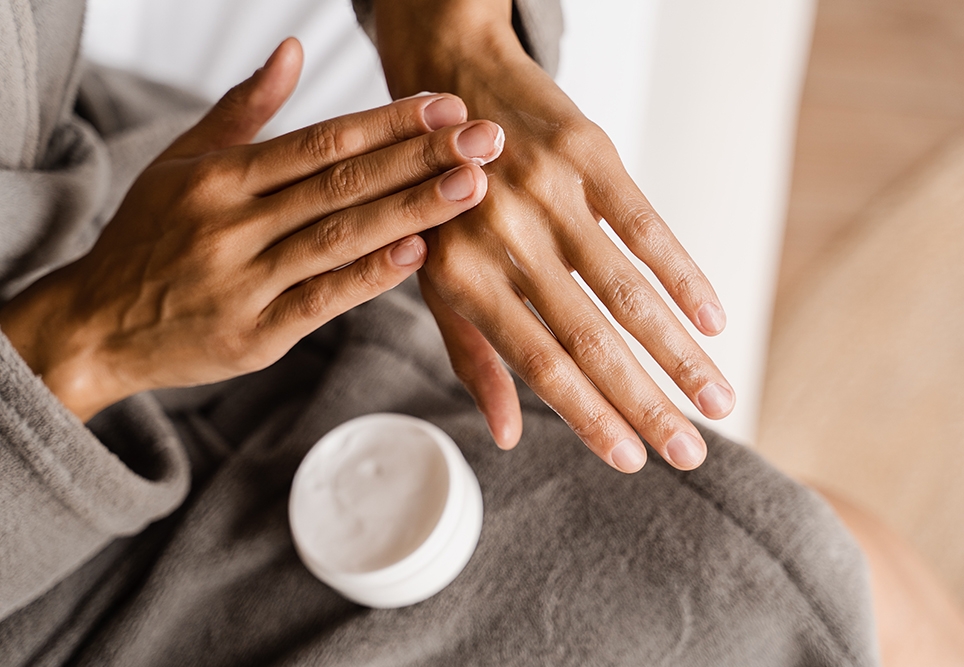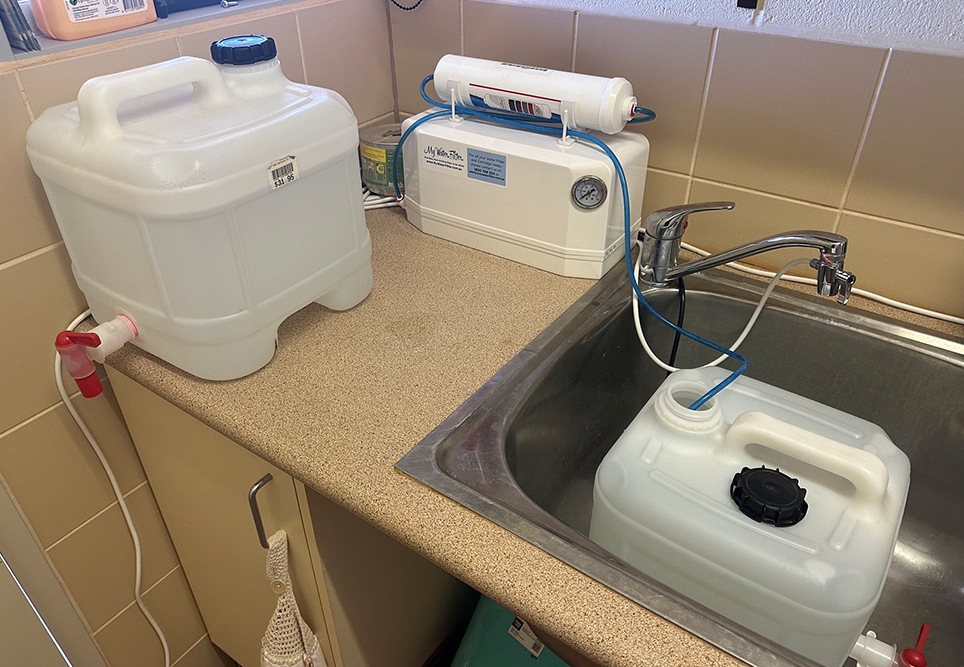This site may not work properly using older versions of Edge and Internet Explorer. You should upgrade your browser to the latest Chrome, Firefox, Edge, Safari, or any other modern browser of your choice. Click here for more information.
Your Stories
This is where we tell your stories, cover topical issues and promote meaningful initiatives.
Remote area nursing packing list
We invited CRANAplus Members to share their advice on items to bring when working in a remote area, or to purchase when visiting a regional or urban hub. Here is the list you helped us to compile!
1. Coffee
As Laura from Arnhem Land puts it, “good coffee is hard to come by”. How people come by it differs widely. Leanne takes a coffee pod machine and enough pods to last the duration. Caroline prefers her AeroPress and likewise Katrina and Karlene take a coffee plunger/French press and ground coffee. Wendy switches between these contraptions depending on whether she’s flying or driving. Tea drinkers, bring some high-quality tea bags!
2. A sharp knife & cutlery
Blunt knives are commonplace. Kelly recommends a small Japanese cooking knife and Mary recommends Wiltshire Stay Sharp knives, though they did hold her up at airport security recently. A knife sharpener also works.
Travel cutlery, a small frypan, a teaspoon, a fork, and a peeler may also be of use. A can opener will allow you to open cheap brands of canned foods that still require one. Kelly suggests a whisk to prepare eggs or protein shakes/smoothies.
3. Entertainment
Alice likes to bring books about the location she’s going to: history, current community activities, and especially simple language learning texts. It’s common for people to leave books behind and senior colleagues are likely to have exhausted the ‘clinic library’. They’ll be keen to swap. Books will help you to get through any power outages!
Members also suggested a Kindle, knitting/crochet materials, a jigsaw and puzzle mat, card games, board games, and other hobby items, such as model trains. Brochures on local tourist attractions and camping gear may help you to make the most of any time off.
A craft project can also be a great source of entertainment. Sandra has started a little cottage industry making ‘Crochet Critters 4 Community Kids’ which she gives to children during health checks, or immunisations. “It’s a hit and I love spending my downtime creating these critters” she says.
4. Medications
Medications may not be readily available in remote areas, or difficult to obtain with privacy. Members recommend bringing a stock of your regular medications, and also those that you only occasionally use – enough to last the rotation.
If you are able to file scripts where you work, be sure to bring these too. If you travel by boat or plane, consider bringing ginger travel sickness tablets.
5. Cosmetic/comfort items
Caroline recommends bringing your favourite perfume and hair dye to cover any greys/regrowth. A good moisturiser can be a nice touch and help in a location with hard mineral-rich water.
Spa treats, a scented candle, body cream, DIY pedicure goodies, a small mirror, shampoo/conditioner in little containers, a face washer, a heat pack, a small fan, your own pillow and pillowcase, a sheet/your own linen, your own blankets, a mattress topper, and chocolate were among the other recommendations.
Lorraine says she always has a day of ‘maintenance’ spoiling herself on return to the city lights.
6. Food
As Fiona says, it may be necessary to lower your expectations about fresh food and other groceries and to get creative with what’s available. Many Members including Christine suggested taking herbs and spices or your own curry pastes, which can be double sealed in zip lock bags to save on space within luggage.
Nadine from the Kimberley suggests Tupper-ware containers for left-over food. Meanwhile, John brings plenty of pre-prepared meals or ingredients to make and freeze for when he is on call – because there’s nothing worse than having a meal half cooked when the phone call comes in that keeps you out all night.
Non-perishable items, including long-life milk, will protect you if there’s a power outage. When it comes to versatile cooking methods, you can’t beat an air fryer!
7. Water
There are many different approaches to water and the correct approach will depend on location. As John says, “in some communities the water can have a unique taste and can take a long time to get used to. I suggest bringing your own water with you and drinking plenty of it.” Wendy suggests a BRITA water jug with a filter to remove the taste, calcium and so on.
Ben and his partner take water purification to another level, using a ‘My Water Filter’ Reverse Osmosis Portable Unit to remove heavy minerals and improve drinking water. As Ben explains, “it generates 20 litres of water in about 1 hour and 15 minutes. The cost of the unit is approximately $500. Your filter replacement cost is $1,000 over five years (which initially sounds a lot); however, we go through 5 litres every day… The ROI is 14 months compared to buying $3.50 boxed water. So once you hit month 14 you’re actually saving money compared to buying boxed water.”
8. Electronics
Make sure you sign up to a Telco provider that provides coverage in the area you will be working. Some people like to purchase a phone plan with additional data; others bring their own WiFi in the form of a portable WiFi unit or a dongle with internet connection (e.g. search “Telstra dongle”).
You can keep up a strong connection with home by bringing family photos to put on the wall. To learn about any upcoming local events, you can join the local Facebook page if there is one (thanks Beck for this tip).
Laptops and tablets are commonly brought for entertainment value or practical value (for example, to store copies of important documents like your licence or qualification certificates). Some folks use Chromecast to broadcast onto a TV. Many Members suggested bringing an extension cord and a power board with many outlets. Portable powerpacks, car chargers, and back-up charging cords keep the charge flowing. Caroline brings a spare phone in case she loses or breaks her main one. She also makes sure to have programs and podcasts downloaded in case of internet failure.
Lots of RANs like to bring cameras and/or drones to capture the lovely scenery and many recommend bringing extra storage, such as a harddrive or USB, to ensure you don’t run out of space.
A good set of Bluetooth earbuds can make a world of difference, as Anna from Torres Strait explains. “I spend a lot of time alone whilst out in community and my earbuds are a great companion. I can be inspired by a great podcast, I can run out the frustration of a hard day to some great tunes, I can cook my food for the week listening to a fantastical story or I can escape the world with a mindful meditation. I get whatever I need, whenever I need it, whilst not disturbing anyone else.”
9. Versatile clothing
Deborah from the Kimberley, Kerry and Liz suggest bringing bathers – because “you never know when you might need them” and “there is always somewhere to swim”. Then again, as David and John agree, the “desert is not always hot” so be sure to bring some warm clothes and a lightweight rain coat.
Liz recommends outfits that can be layered for warmth. Shoe-wise, she recommends a universal pair to wear everywhere and light runners for walking. Sturdier footwear may also be in order, depending on the terrain.
Other miscellaneous clothing items to consider include a wide-brimmed hat, a towel, dry bags for organising clothes in luggage, and a bra bag to wash delicates. Barb recommends culturally appropriate clothing, meaning “no short skirts or shorts, no tight and revealing tops” and likewise, other Members suggest non-revealing clothes for respect and sun protection.
10. Insect & weather protection
You only forget a fly net or bug spray once! Mosquito repellant can help particularly at night, as may a plug-in mosquito repellent for your bedroom. Sunglasses, a hat, sunscreen, a snake bite bandage and an umbrella are also useful for keeping out the critters and the elements.
11. Exercise equipment
With no gyms available, you’ll have to make your own! Members suggested a range of portable exercise equipment, including skipping ropes, resistance bands for Pilates sessions, exercise balls, and yoga mats.
12. Miscellaneous items
There are plenty of other items that you might like to consider bringing or collecting when you can, including:
- A toolbox with the basics: torch, screwdrivers of multiple sizes, cable ties, adjustable wrench, and batteries (thanks Jess from Tassie for this tip)
- Spare copies of the CARPA and Clinical Procedures Manuals
- A high-quality stethoscope
- A notepad and pen to record when you go for a callout and when you come back; or simply for journaling
- Lunch box and drink bottle
- Anti-bacterial wipes. As Andrea from NT tells us, “Strike and Ultra anti-bac wipes 100pk cost $3.50 in cities. Much smaller packs over$10 in my remote town in NT. I always grab these when I’m in Alice.”
- Earplugs for barking dogs (thanks Barb)
- Door stops for when in accommodation with a conjoined bathroom or for extra security
- A black sarong (which can also be used as a curtain) – thanks Sheri Anne
- An eye mask for sleeping
- Laundry powder/detergent, pegs and a string clothes line
- Cash, because cards may not work at the local store
- A bedside light.
Packing light
It’s unlikely that you’ll be able to bring all of the items on this list and in fact many Members talked about the merits of packing light. If you are driving to the location as opposed to flying, it may be possible to bring more.
The location will also influence how much you need to bring – some places have more shops than others or are closer to rural centres.
Location will also determine how much you can bring. Airlines often have strict baggage allowances and sometimes due to payload restrictions in the wet season, additional checked baggage may be put on standby and transported on later flights.
It may be possible to send extra resources ahead of time, but this will depend on location.
When working remotely, it is not always possible to recreate the comforts that are customary in urban or even rural Australia. Being aware of this in advance can help you to prepare for your experiences and embrace the ‘resourcefulness’ that can allow you to thrive in a remote location.
Many people report that after some initial adjustment, they come to feel they need less than they ever thought. However, having limited access to resources does not miraculously get easier; it can be an ongoing challenge.
If you need support or strategies to navigate the significant demands you face as a remote health professional, remember that you can call the Bush Support Line at any time on 1800 805 391.




